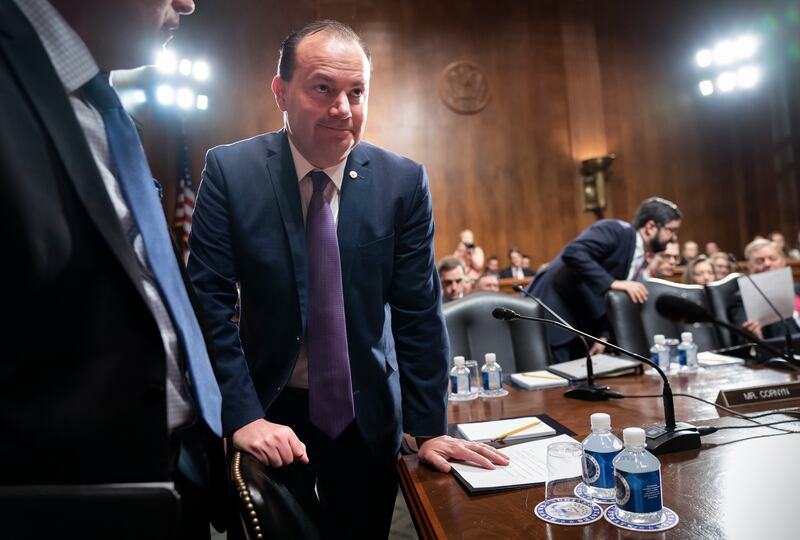The year was 2011, and President Barack Obama had ordered airstrikes in Libya without congressional approval.
Republicans were outraged, as were many Democrats. They were so angry, the House passed a resolution claiming the president had initiated this action without justifying it to Congress, and telling him not to employ ground troops.
And yet the president continued the campaign.
That so many Republicans today are quick to support President Donald Trump’s actions in Iran without at least informing congressional leaders first, and without outlining the justifications for those actions, illustrates how even the use of military force has become a hyperpartisan matter these days.
That’s unfortunate. No power granted to government is so important as that which may result in the taking of life and the instigation of a war. We’re glad Utah Sen. Mike Lee had the courage this week to passionately denounce an administration briefing to senators on the Iranian situation for being “insulting” and “demeaning,” and specifically for being such toward the office of a senator and the Constitution.
The Senate on Thursday considered a resolution invoking the War Powers Act and compelling debate over actions in Iran. That act, passed over the veto of President Nixon in 1973, has been considered unconstitutional by virtually every president since, of either party.
In truth, this argument over who gets to put American soldiers in harm’s way, and for what reasons, has been raging nearly since the beginning of the union. The Constitution seems to be contradictory in that it specifically grants Congress the power to declare war but also makes the president commander in chief of the armed forces.
Congressional authorizations to use force seem to be less controversial than declarations of war. And yet not every president has sought authorization.
George Washington didn’t get one before launching offensives against certain Native American tribes. Thomas Jefferson got one before sending warships to fight pirates near present-day Libya. Obama did not before his Libyan air campaign.
George W. Bush got one before launching the war on terror nearly two decades ago. Some argue it still is in effect.
And yet it seems counter to the intent of the founders that a president could launch military actions without at least consulting the people’s representatives.
In a New York Times op-ed written 30 years ago, when the first President Bush engaged soldiers in the Gulf War to liberate Kuwait, two law professors — Leon Friedman or Hofstra University, and Burt Neuborne of New York University — quoted from the Constitutional Convention of 1787 to argue why he needed the consent of Congress.
Delegates to that convention overwhelmingly defeated a motion to empower the president to initiate a war, they wrote. George Mason of Virginia was “against giving the power of war to the executive” because the president “is not safely to be trusted with it.”
The convention finally settled on giving Congress the power to declare war, which James Madison predicted would leave the chief executive with the power “to repel sudden attacks.”
In Federalist Paper No. 69, Alexander Hamilton noted the differences between the American president and the King of England. The king could declare war, raise fleets and armies and command them. Under the Constitution, the president’s power “would amount to nothing more than the supreme command and direction of the military and naval forces, as first General and admiral of the Confederacy.”
The need to involve the people’s representatives — who have a right to know the reasons and justifications for war, who hold the purse strings to fund it and whose constituents may be called upon to die — should be obvious.
The definition of when the danger of an attack warrants immediate executive action has raged ever since. But the need to involve the people’s representatives — who have a right to know the reasons and justifications for war, who hold the purse strings to fund it and whose constituents may be called upon to die — should be obvious.
The War Powers Act seems a reasonable check on the abuse of that power. That should be true as a matter of principle, and not subject to the partisan whims of whoever happens to be in the White House.

